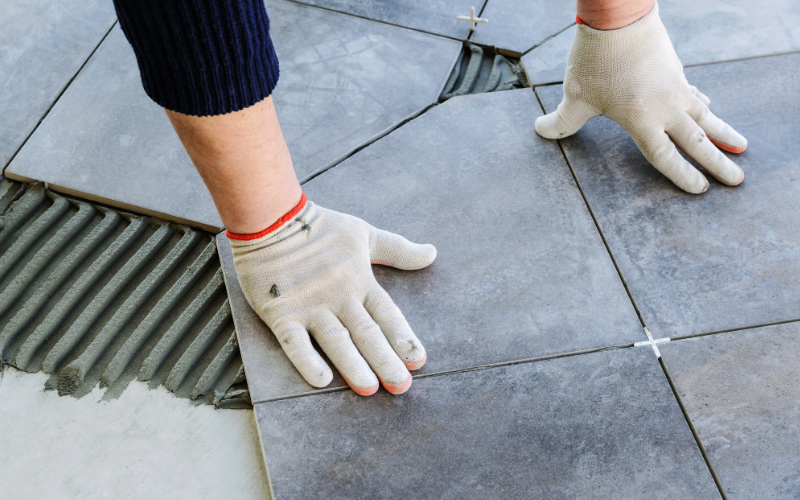
Foundation repair is the first to achieve structural integrity in buildings and infrastructures. Fundamentally, setting, shifting, and cracking of foundations may occur over time through environmental factors, poor construction practices, and natural wear and tear. The most practical technique among these issues would be grouting material. Grouting material plays a role in stabilising and reinforcing foundations to prevent further deterioration and ensure safety and longevity. The article discusses the importance of grouting material in foundation repairs, the types, and how it contributes to the long-term stability of a building.
Why Foundation Repair is Necessary
The foundation is the most crucial structure of any building, as it bears the weight. Over time, foundations are subject to a range of forces supporting soil, water intrusion, and seismic actions that cause structural damage to the building. Over time, these damages escalate into catastrophic problems such as unlevelled floors, cracked walls, and even collapse. Foundation repair is necessary for remediation to get the building to a stable condition and prevent further damage.
The grouting method involves injecting grouting material into the affected areas. This technique will help fill gaps, strengthen weak points, and support the structure by maintaining the foundation. Grouting materials are selected according to the needs for the repair, whether it be the size of the cracks or the type of soil beneath the foundation.
The Role of Grouting Material in Foundation Repair
Grouting material is indispensable in repairing foundations, as it fills in voids, stabilises loose soils, and strengthens the weak points of the structure effectively. Once cracks or voids in the foundation are spotted, the grouting material injected into these spaces can prevent settlement or movement. This approach will stabilise the foundation and spread the weight evenly, reducing hazards further.
Materials for foundation repair serve as a binder to hold the structure together. The ability to expand and harden within the crack or void makes the grouting material create a solid barrier to prevent water infiltration, one of the main causative agents of deterioration. Grouting material prevents water infiltration into the foundation, thus minimising the occurrence of erosion of the soil that may further weaken the structure.
Types of Grouting Material Used in Foundation Repair
There are various types of grouting materials used in foundation repair. Each type of grouting material serves in its particular kind of repair. The type of grouting material is determined by the type of foundation that one has, the extent of the damage to the foundation, and certain environmental conditions the building is subjected to. Below are some of the most common types of grouting material used in foundation repair:
- Cementitious Grout: This mixture of cement, water, and sometimes sand is used in larger voids or cracks on concrete foundations. The option presents toughness and can develop high strength and stability in the foundation. However, it has less flexibility compared to other types of grout and is best for static foundations with limited movement.
- Polyurethane Grout: Polyurethane grout is a very flexible and expanding grouting material, reaction with water produces a foamy consistency. This grouting material makes it ideal for small cracks and voids in foundations, especially those concerned with water infiltration. The expanding nature fills even the tiniest gaps to form a watertight seal against further damage.
- Epoxy Grout: Epoxy grout is one of the strongest types. In most applications, it is used in structural repairs, particularly when high strength is required, as in industrial bridge construction. It resists chemical and water activities.
How Grouting Material Enhances Foundation Stability
The purpose of grouting material in the case of foundation repair is to provide enhanced stability of the overall structure. Grouting materials fill up cracks and voids within the structure, making the foundation resistant to different natural elements like water pressure, shifting of soil, or weight from the structure itself. Such stabilisation avoids further settlement or shifting that might result in more critical problems.
Grouting material stabilises the foundation, hardening any weak spots that may have set in over time. If a foundation has settled unevenly, grouting can raise and align a structure so that weight is evenly distributed on its base. The process is valuable for those structures built on soils prone to shifting, such as clay or sand.
Long-term Effectiveness of Grouting Material in House Foundation Repair
Other long-term benefits of grouting material in foundation repair include preventing further damage and reducing frequent maintenance. When applied, grout creates a solid, durable barrier that can resist the pressures exerted on the foundation, including water infiltration or expansive soil. It minimises further cracking or settlement and prolongs the life of the structure.
Besides, grouting material preserves the aesthetic appearance of the building: filling in the cracks and gaps prevents the visible damage of some characteristics, say, cracks in the walls or the floor are becoming worse and preserving the property. Economically speaking, though, grouting material provides long-term savings to property owners by side-stepping higher and more intensive repairs later.
Finally, it is important in grouting material for foundation repair that it provides stability that prevents further damage and prolongs a structure’s life due to issues with water infiltration or soil movement concerning cracks in the foundation. It is necessary to choose the right type of grouting material for your building regarding long-term stability and safety. Based on the project, various benefits are offered by cementitious grout, polyurethane grout, and epoxy grout.
For professional advice on the best grouting materials that fit your unique foundation repair needs, call Adcos Asia today. Let us help protect your structure and ensure its stability with high-quality grouting solutions.




